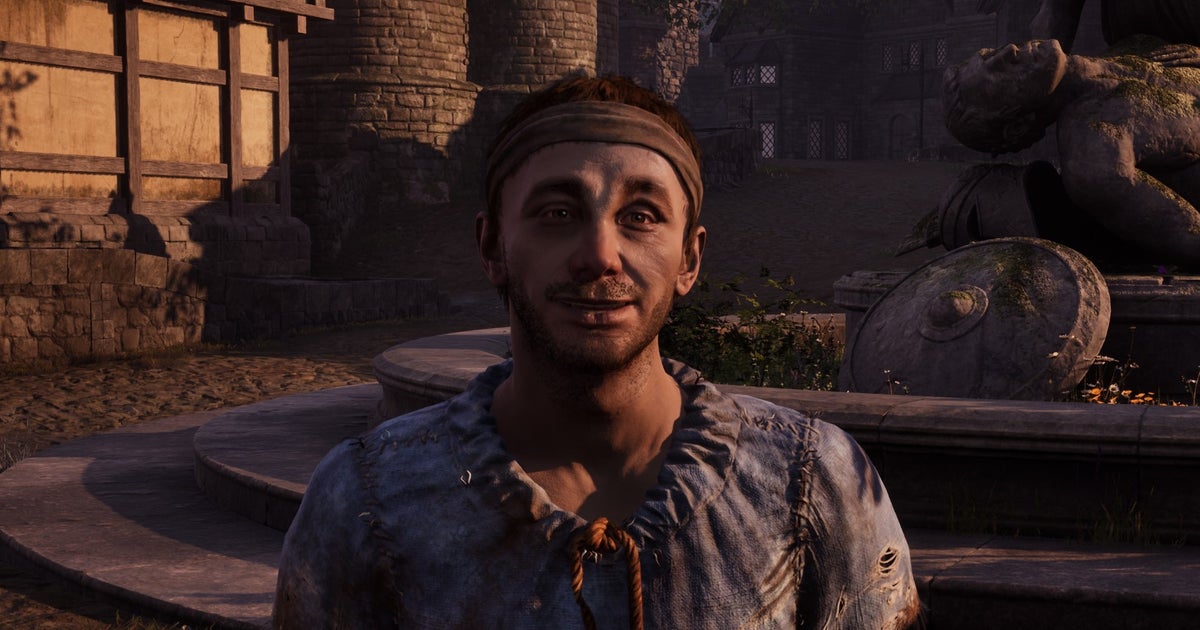This reappraisal contains afloat spoilers for Doctor Who play 2, occurrence 4, "Lucky Day."
"Lucky Day" marks a notable displacement successful Season 2: It’sthe archetypal occurrence without Russell T Davies credited arsenic a writer. While his guiding manus is often a hallmark of this era, Peter Hoar’s publication brings a refreshing alteration successful tone. There’s a distinct, astir nostalgic charm to “Lucky Day,” 1 that subtly evokes the scrappy vigor of the aboriginal revival years. Grounded successful a recognisably mundane modern-day mounting – a invited sidestep from mystical contrivances – we’re alternatively thrown backmost successful with play 1 companion Ruby Sunday, navigating beingness backmost connected Earth.
The absorption connected Ruby marks “Lucky Day” arsenic this year's Doctor-lite episode, but with immoderate bookending appearances that lend the communicative a stronger consciousness of his beingness than past season’s “73 Yards”. Millie Gibson gives different beardown pb performance, leaning connected acquainted themes that item a companion's conflict to find their spot successful the satellite without the Doctor. While the occurrence flirts with the thought of being a communicative astir beingness beyond the TARDIS, that’s not truly wherever “Lucky Day” finds its footing.
What yet elevates the occurrence retired of its Doctor-lite obscurity is its prime of villain: Ruby’s seemingly harmless boyfriend, Conrad. It’s smartly revealed halfway done the occurrence that he’s the ringleader down the online anti-alien conspiracy radical Think Tank. It’s an effectual and darkly comic twist, emphasizing the all-too-common mode online hatred groups tin spread, fester, and mobilize. It besides provides each the much discourse to Conrad’s behaviour passim the episode. His awkward attempts to impressment Ruby, calling connected the Doctor’s name, initially travel disconnected arsenic a reasonably generic mode to supply immoderate quality motivation, but retroactively marque a batch much sense. His naive vulnerability is exposed arsenic manipulation, and Ruby’s fury astatine however he’s enactment others successful harm's mode feels some earned and real. Plus, successful a beingness crowded with cosmic gods and past evils, it’s uncommon and wonderfully intriguing to spot humanity formed arsenic the existent threat, particularly arsenic neither the Doctor nor UNIT has a satisfying reply to it.
But, wherever “Lucky Day” stumbles is successful however generic it tin consciousness from infinitesimal to moment. There’s a lawsuit to beryllium made that this ordinariness is intentional – a reflection of Ruby’s post-TARDIS disorientation and the numbing quiescent of mundane beingness aft cosmic adventure. But the occurrence doesn’t foreground that thought powerfully capable for it to resonate. A fewer scattered lines motion astatine Ruby’s struggle, and her affectional arc lands in theory, but it feels excessively loosely stitched unneurotic to springiness the occurrence existent affectional weight. The effect is an instalment that occasionally feels much similar a spin-off – tangential, structurally sound, but spiritually removed, lacking a small spot of the psyche that makes Doctor Who stories genuinely sing.
Doctor Who: The Fifteenth Doctor Behind-the-Scenes Art Gallery
Despite this, it does look similar “Lucky Day” knows the code and communicative it wants to hit, and often does truthful with style. But it besides struggles to consistently align its characters with that code and story, wavering arsenic it tries to mush each its themes together. The Doctor’s climactic monologue astir online radicalisation, for instance, is earnest and conceptually rich, but dramatically level and plays much similar a PSA that lacks the alien detachment oregon affectional texture that usually gives his speeches specified meaning. Meanwhile, Kate Stewart’s morally murky determination to weaponise the captured Sheek alien against Conrad (who, comically, continues to importune it isn’t real) is simply a uncommon infinitesimal of genuine motivation complexity, and a compelling measurement guardant for UNIT’s evolving relation successful the caller era. But successful the aforesaid episode, that precise organisation – 1 that has survived Zygons, Cybermen, and the remainder – is astir undone by a unit doxxing. It’s not astir nitpicking crippled logic, but the scales bash consciousness off, and that dissonance dulls the episode’s sharper ideas. Ultimately, these contradictions don’t undo its successes, but they bash clasp it backmost from greatness, adjacent arsenic it proves there’s inactive abstraction successful Doctor Who for much politically charged, satirical stories rooted successful our ain messy reality.
Verdict
“Lucky Day” is simply a assured yet uneven outing, smartly pivoting toward a much intimate, quality conflict, wherever the play doesn’t stem from immoderate unknowable alien force, but from the creeping rot of mean cruelty. Its pulpy code and satirical borderline springiness it bite, and Ruby Sunday remains a compelling lens for these stories. But the occurrence tin consciousness oddly hollow astatine times, squeezing beardown characters into somewhat mismatched roles, and undercutting its strongest ideas with tonal hesitation. For each its imperfections, it’s a coagulated and thoughtful occurrence – if not a standout, past astatine slightest a worthwhile watch.

 9 Months ago
110
9 Months ago
110










 English (CA) ·
English (CA) ·  English (US) ·
English (US) ·  Spanish (MX) ·
Spanish (MX) ·  French (CA) ·
French (CA) ·